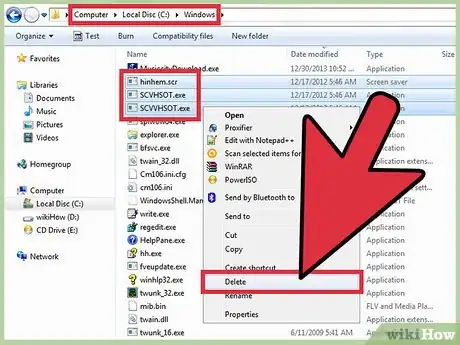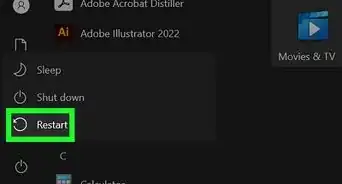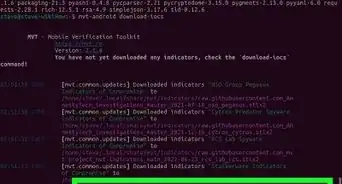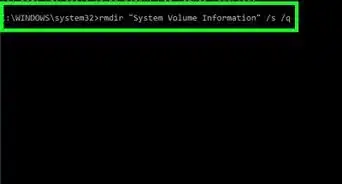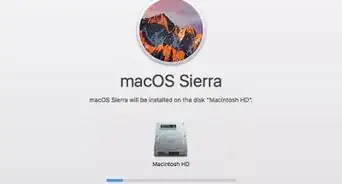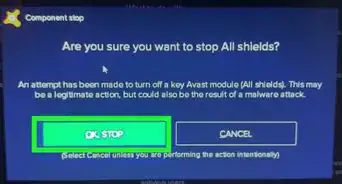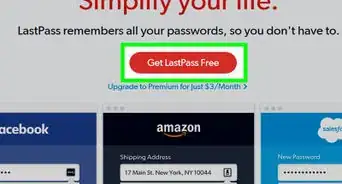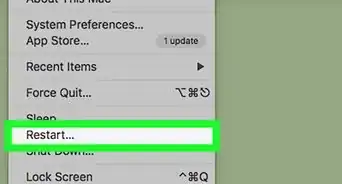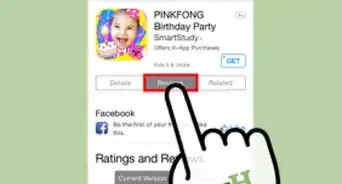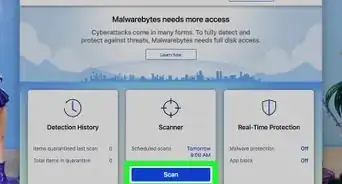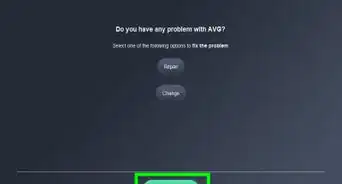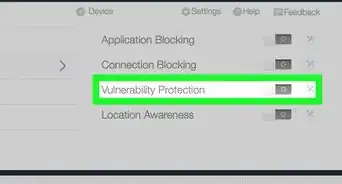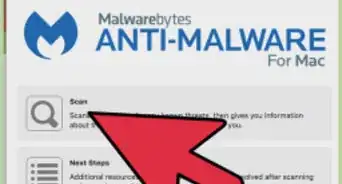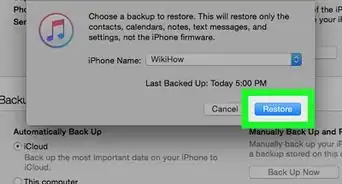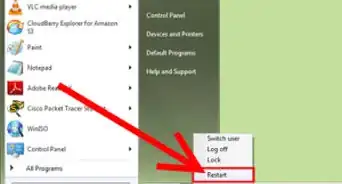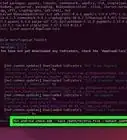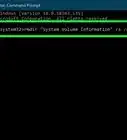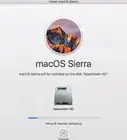This article was co-authored by wikiHow Staff. Our trained team of editors and researchers validate articles for accuracy and comprehensiveness. wikiHow's Content Management Team carefully monitors the work from our editorial staff to ensure that each article is backed by trusted research and meets our high quality standards.
This article has been viewed 386,186 times.
Learn more...
The Newfolder.exe Virus is one of the more dangerous viruses that hides files in USB files and disables things like Task Manager, Regedit, and Folder Options. The virus creates .exe files that mirror your existing files, leading to the virus taking up as much as 50% of your storage space, along with other nasty side effects, which can cause your computer to experience a drastic loss in speed and efficiency.
Steps
Removing Newfolder.exe Manually
-
1Open the Command Prompt. Go to "Start" and search "cmd" without quotation marks. Click "Run." This will cause a black window to appear.
-
2Enter the following commands one by one. These will delete the preliminary stages of the virus.[1]
taskkill /f /t /im “New Folder.exe”taskkill /f /t /im “SCVVHSOT.exe”taskkill /f /t /im “SCVHSOT.exe”taskkill /f /t /im “scvhosts.exe”taskkill /f /t /im “hinhem.scr”taskkill /f /t /im “blastclnnn.exe”
Advertisement -
3Enable Task Manager and Regedit. Because one of the symptoms of the Newfolder.exe virus is disabling things like Task Manager and Regedit, you will need to reenable them after you delete the virus. You can do this by entering the following commands one by one:[2]
reg add HKLM\Software\Microsoft\Windows\CurrentVersion\Policies\System /v DisableTaskMgr /t REG_DWORD /d 0 /freg add HKCU\Software\Microsoft\Windows\CurrentVersion\Policies\System /v DisableTaskMgr /t REG_DWORD /d 0 /freg add HKLM\Software\Microsoft\Windows\CurrentVersion\Policies\System /v DisableRegistryTools /t REG_DWORD /d 0 /reg add HKCU\Software\Microsoft\Windows\CurrentVersion\Policies\System /v DisableRegistryTools /t REG_DWORD /d 0 /f
-
4Enable "View Hidden Files." To do this, go to the "Start Menu" and select "Control Panel." From here, go to "Appearance and Personalization" and then "Folder Options." Select "View Tab," "Advanced Settings," and finally "Show Hidden Files, Folders, and Drives". Click "OK."
-
5Delete the following files one by one. These will delete the rest of the virus.[3]
C:\WINDOWS\SCVVHSOT.exeC:\WINDOWS\SCVHSOT.exeC:\WINDOWS\hinhem.scrC:\WINDOWS\system32\SCVHSOT.exeC:\WINDOWS\system32\blastclnnn.exeC:\WINDOWS\system32\autorun.iniC:\Documents and Settings\All Users\Documents\SCVHSOT.exe
Using a Newfolder Removal Tool
-
1Find and download a Newfolder Removal Tool. If you feel uncomfortable removing the virus manually, there are several free tools that you can employ instead. Newfolder Removal Tool is the most recommended option because it is free, easy to download, and has high success rates. To download the tool, simply go to http://www.new-folder-virus.com and select the download option.
-
2Run the tool. This may take anywhere from ten to thirty minutes to run fully. It will then show you all of the files associated with the virus. Select “Next” in order to remove them.
-
3Fix your Registry. Viruses and Malware affect your registry and you can fix it by following the methods outlined in the fix your computer registry for free.
Community Q&A
-
QuestionHow do I remove other types of viruses?
 Community AnswerJust save everything (excluding the viruses) onto a hard drive. Then reset your computer's system and use your hard drive to put everything you need back on.
Community AnswerJust save everything (excluding the viruses) onto a hard drive. Then reset your computer's system and use your hard drive to put everything you need back on.
Warnings
- Making registry edits can cause serious problems to your system if you are not careful.⧼thumbs_response⧽




